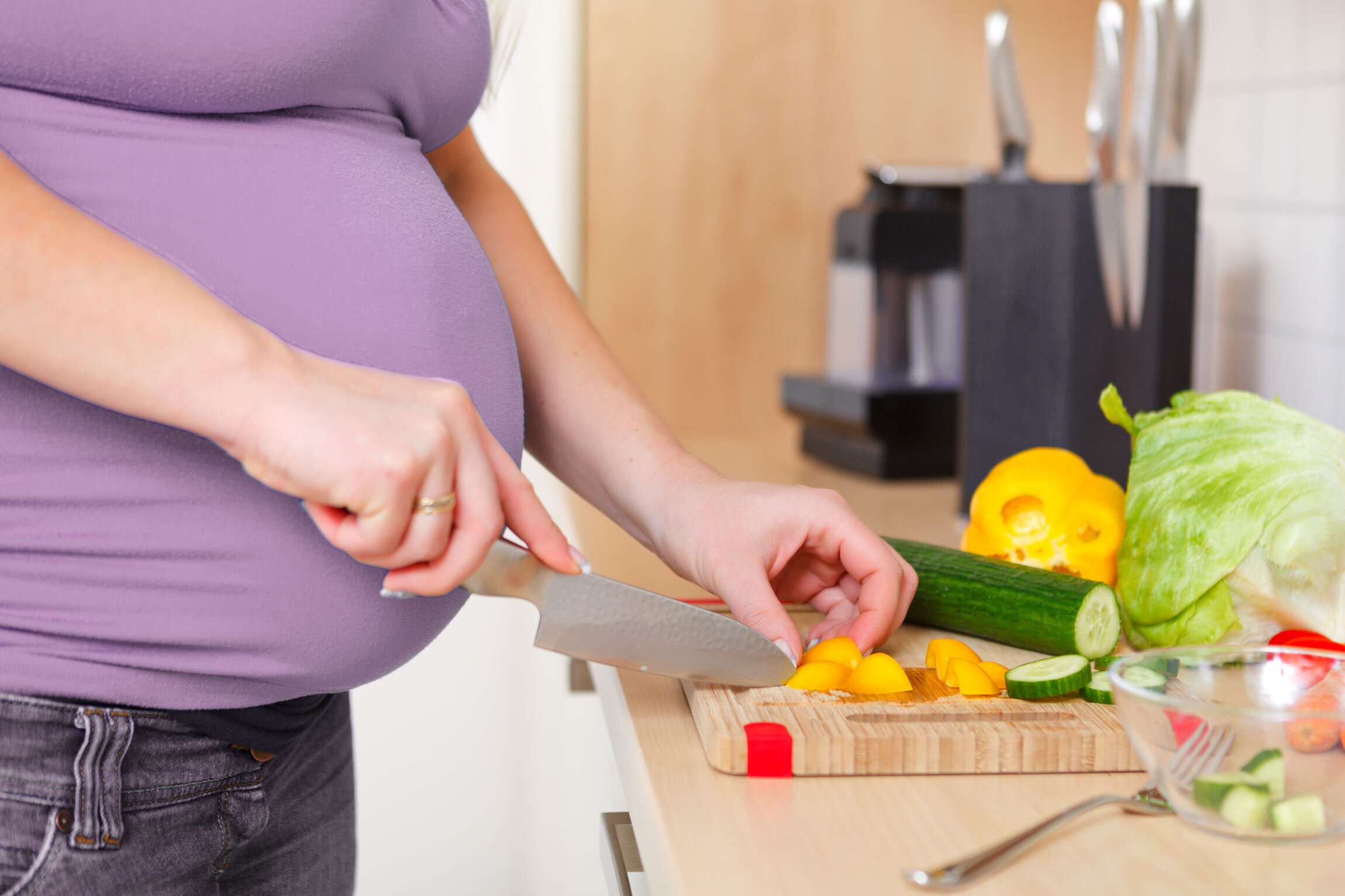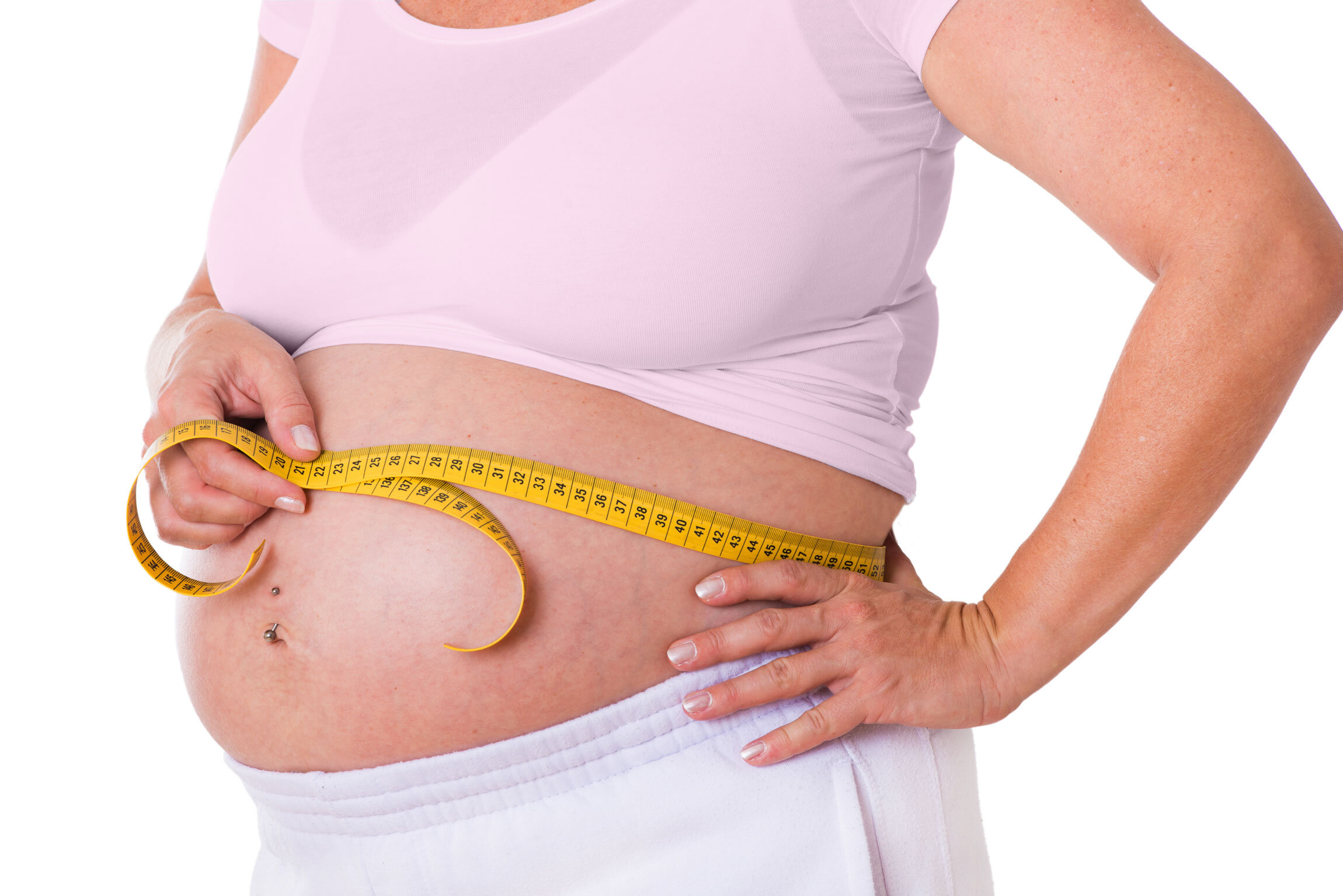Being pregnant is a dream… if there weren’t those additional pounds slowly creeping up on you. Gaining weight during pregnancy is normal. However, food cravings, stress and more can cause pregnant women to gain more weight than is healthy.
Weight gain in pregnancy is not only due to the growing baby, but there are other changes in the body that lead to extra weight. Your body produces additional breast tissue, placenta and uterus become larger and the amount of amniotic fluid increases. Also, the body starts storing additional fat and water during pregnancy.
How does nutrition affect weight gain in pregnancy? How much weight gain is normal in pregnancy? What can help prevent excessive pregnancy weight gain? We have collected the best tips and advice to help you control weight gain during pregnancy.
Table of content
How much weight gain in pregnancy is normal?Controlling pregnancy weight gain through a healthy diet
Healthy weight gain in pregnancy thanks to exercising
Managing pregnancy weight gain: dealing with food cravings
A final word on healthy weight gain in pregnancy
How much weight gain in pregnancy is normal?
There are several changes that take place in the body during pregnancy. One of these changes is that the body gains weight. Mums-to-be who are conscious about their shape and figure often wonder: How much weight gain is normal in pregnancy?
What counts as a normal weight in pregnancy depends on the mother’s pre-pregnancy body weight. The appropriate guide values are given by the body mass index (BMI) calculator, which also provides information for pregnant women.
For women of average weight, a normal weight gain in pregnancy is somewhere between 11.5 kg and 16 kg. The biggest weight gain happens during the second and third trimester. During this time, the weekly weight gain can reach 0.4 kg to 0.5 kg.
Women who are underweight should gain a little more weight during pregnancy (between 12.5 kg and 18 kg). Mums-to-be who are overweight, on the other hand, should try to control their weight gain. Ideally, they should not gain more than 7kg to 11.5 kg during pregnancy.
Good to know: Many women are afraid of gaining weight during pregnancy because they worry about getting stretch marks. However, you should know that there is no scientific evidence that healthy pregnancy weight gain can effectively prevent pregnancy stretch marks.

Controlling pregnancy weight gain through a healthy diet
Regardless of whether you are pregnant or not, a balanced diet is key to a healthy body weight. This also holds true for weight gain in pregnancy.
Preventing excessive or rapid weight gain is crucial for reducing the risk of complications during labour and gestational diabetes. A healthy pregnancy diet can help to effectively control weight gain in the months before birth.
But what does a healthy pregnancy diet look like? Which nutrients are important for a healthy pregnancy weight gain? Which foods can help prevent excessive weight gain?
Here are a few guidelines for healthy eating during pregnancy:
- Prefer complex carbohydrates and whole grain products.
- Eat five servings of fruit and veg per day.
- Make sure to have a sufficient intake of folic acid, iodine, vitamin B12, calcium and iron.
- Eat one to two servings of lean meat per week (no raw meat).
- Include one to two servings of fish in your weekly meal plan (avoid predatory or deep-sea fish and raw fish).
- Add plant-based proteins to your diet.
- Choose low-fat dairy products.
- Wherever possible, try to avoid eating processed foods.
- Drink plenty of fluids (at least three litres per day).
- Eat several smaller meals throughout the day.
Good to know: It’s a common misbelief that pregnant women need to eat for two. Eating more than you actually need just because you’re pregnant is not a good call. Your body needs way fewer calories to cover the needs of your baby than what is needed for a fully-grown adult.
Healthy weight gain in pregnancy thanks to exercising
There are quite a few things mums-to-be need to keep in mind during pregnancy in order not to harm their baby. This not only includes avoiding certain foods, but also covers sports and exercising. Exercising is an important means of controlling weight gain in pregnancy. But what types of exercise are safe during pregnancy?
Exercise and physical activity increase mental and physical well-being and can help prevent excessive pregnancy weight gain. Exercising burns additional calories, which means that less weight is gained - even if your pregnancy cravings get the better of you. It is recommended that pregnant women exercise at least 30 minutes per day five to seven times a week.
However, physical activity during pregnancy shouldn’t be strenuous. In other words, don’t exhaust yourself. An easy way to monitor the intensity level when exercising is the so-called “talk test”. If you’re able to talk normally (i. e. without being out of breath) at any point while exercising, you’re doing everything right.
Here is an overview of suitable forms of exercise for mums-to-be:
- Stretching
- Swimming
- Aquafitness
- Cycling
- Fast walking
- Nordic walking
- Low-impact aerobics
- Yoga for pregnant women
Good to know: The general recommendation of walking 10,000 steps per day also applies during pregnancy. Also, pregnant women should avoid spending a lot of time sitting. Whenever you need to sit for long periods, make sure to stand up in between and move around.
Pregnant women only need to refrain from physical activity when there is a risk of premature birth. If this is the case, your midwife, GP or gynaecologist will advise you on what you need to do to keep your baby safe.

Managing pregnancy weight gain: dealing with food cravings
Food cravings are a wide-spread problem among pregnant women and are often to blame for rapid or excessive weight gain in pregnancy. Here are a few helpful tips for controlling food cravings:
- Eat less but more often: Eating several smaller meals throughout the day prevents low blood sugar levels which often cause food cravings.
- Schedule your meals: Set more or less fixed hours for eating and try to stick to them by planning your day accordingly.
- Drink plenty of fluids: Many people confuse thirst and hunger. Drinking plenty of fluids throughout the day helps prevent this.
- Prefer healthy snacks: If you really feel like eating although you’re not actually hungry, you can have a healthy snack. Suitable snacks include chopped veggies or fresh fruit.
- Increase your protein intake: Protein prevents the blood sugar level from rising too quickly which, in turn, helps control food cravings. Suitable sources of protein include yoghurt with fruit or trail mix.
A final word on healthy weight gain in pregnancy
It is possible to control weight gain in pregnancy. Follow these tips to reach and maintain a healthy weight during pregnancy.
- Regular exercising during pregnancy keeps you fit and prevents excessive weight gain.
- It’s not necessary to eat more than you need just because you’re pregnant. Your body will tell you how much food it needs to supply your baby with enough nutrients and energy.
- Eating a healthy, balanced diet during pregnancy is key, especially when it comes to preventing symptoms of vitamin or mineral deficiency.
- Keep an eye on your weight gain in pregnancy. Your weight will be checked during your prenatal care appointments, but you should also monitor your weight between check-ups.
- Other than too little exercise and an unhealthy diet, it’s mainly food cravings that increase your risk of excessive pregnancy weight gain. If you can control your food cravings, it will be easier for you to control your weight gain.
Verwendete Quellen
- Gewichtszunahme in der Schwangerschaft: Was ist normal? (aok.de)
- Gewichtszunahme in der Schwangerschaft (gesundheitsinformation.de)
- Bewegung vor und in der Schwangerschaft- Gesund ins Leben (gesund-ins-leben.de)
- Microsoft Word - Adipositas -LL Patientinnenversion.docx (awmf.org)
- Sport und Bewegung in der Schwangerschaft- Gesund ins Leben (gesund-ins-leben.de)
















